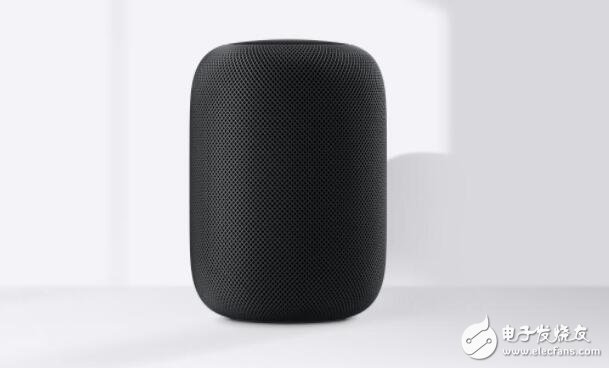At the Apple Developer Conference in June last year, HomePod was launched. After nearly a year, let's take a look at the performance of HomePod and even the voice of doubters.

Before we analyze the market performance of HomePod, I think it is necessary to talk about positioning. Of course, the HomePod market positioning is very simple. HomePod is a smart speaker for Apple's latest audio product. In this area, Amazon and Google occupy a leading position in the market. Amazon has launched a series of Echo devices with its own Alexa voice assistant, while Google's Google Assistant has a wide market share. The only smart speaker device launched by Apple has a high price, and of course it has its own characteristics. Siri is built-in, which is much worse than Alexa and Google's assistants. But I saw that HomePod still has big problems.
The first is the leading attribute of industry agreements. Amazon and Google have been immersed in the smart speaker industry for a long time. Although Apple has the largest market value in the world, it is still a novice in the smart speaker industry. In addition to the suppression of Amazon and Google, what is more important is whether the HomePod launched by Apple can put aside its high profile and adapt to the rules and conditions of the entire smart speaker industry.
Of course, it is undeniable that Apple is already an audio company with AirPods and Beats series headphones, and has big ambitions in headphones and portable speakers. Some people in the industry even think that HomePod's sales in the first year will create about 1 billion US dollars. Sales. But for Apple as a spoiler dominating the niche market, this goal is a bit ambitious.
As a leader in the audio industry, Bose, founded in 1964, was ten years earlier than Apple, and its sales in 2017 reached $3.8 billion.
Users who are familiar with the Beats earphones acquired by Apple know that although the Beats earphones have a better effect on the street, the sound quality and professional performance are not as good as those of professional manufacturers such as Sony.
Next is Siri. Many people think that Siri's poor performance on HomePod is not worried about Apple's AirPods market performance. In fact, the shortcomings of the product itself have not weakened consumer demand for Apple's unique wireless headset.
I think Apple’s executives must be very aware of Siri’s shortcomings, and there must have been moments when they secretly made up their minds to be a Siri voice assistant. But any product has its shortcomings. Even in the author's opinion, Siri is an obstacle. If Siri's performance is not much different from Amazon's Alexa or even Google Assistant, there may be improvement possibilities. Nowadays, many Apple mobile phone users have abandoned the Siri function.
I think Apple should reflect on this fact. After all, consider that Siri was launched as a separate application in 2010, and it was integrated into 4S and entered the field of voice assistants in 2011. Although Siri was early enough, it is bad enough now.
In fact, we don’t know until now that after buying HomePod at home, what is it useful for besides playing music and some silly lazy functions? So we have to think about what product is HomePod? This What kind of user group is this product suitable for?
Although the HomePod product itself still has defects, such as stereo, Apple wireless Airplay protocol version issues and so on. Of course, we believe that over time, the A8 processor and iOS update inside HomePod will bring substantial improvements to the product, and perhaps it will be very competitive in the future. But at the moment, HomePod still has many flaws, I think we must first figure out its own positioning.
Iphone Screen Protector,Tempered Glass,Privacy Tempered Glass,Hydrogel Screen
Shenzhen TUOLI Electronic Technology Co., Ltd. , https://www.hydrogelprotector.com